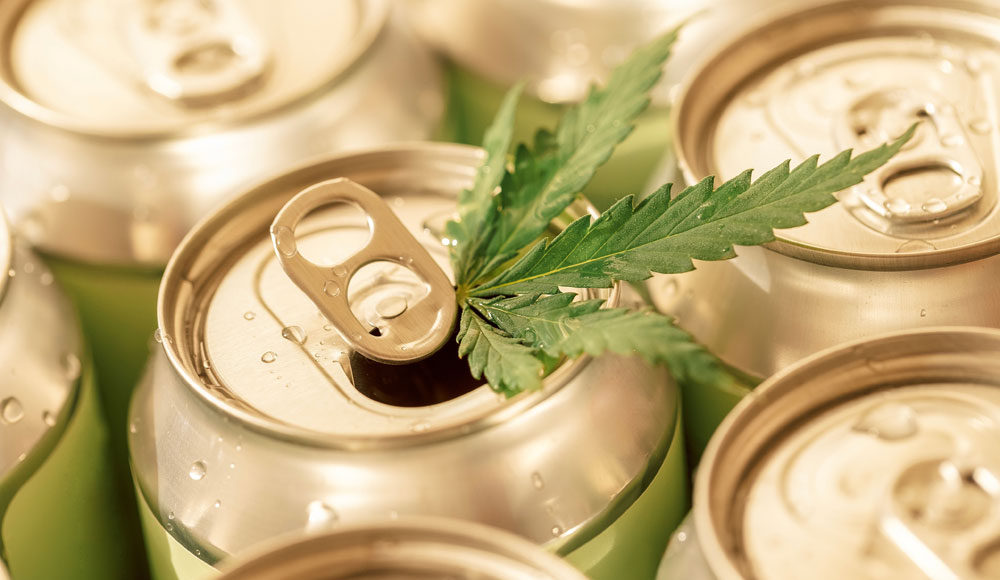Don’t worry, California youth, Gov. Gavin Newsom and his army of regulators are looking out for you in at least one way: thanks to them, you are in less danger of getting a mild buzz from a can of cannabis-infused soda.
In April, Newsom’s office announced a crackdown on companies that are peddling products containing THC isolates derived from hemp, which are illegal in California, but are widely available both online and in retail stores across the state (though generally not in licensed cannabis dispensaries, which sell the good stuff).
This month saw the first enforcement action, if it can be called that: the Department of Public Health warned the public not to drink hemp-based beverages sold under the Mary Jones Soda brand. This is despite the fact that, in nearly all cases, the people who purchased those products knew exactly what they were getting. The DPH also said it was working to get the products removed from store shelves.
In recent years, a whole industry has sprung up for products made from hemp that are meant to get consumers high. Hemp in its natural state doesn’t contain enough THC to cause intoxication. But it does contain some, and it can be isolated and concentrated to create products like those made by the Seattle-based Jones Soda company and a slew of others around the country, many of them far more dicey than Jones.
The products might be beverages, edibles, vapes or tinctures. They exist in a legal gray area because of the way hemp legalization was written into the 2018 farm bill: it specifies that hemp products cannot contain more than a tiny amount of delta-8 THC, which is the kind found much more abundantly in most cannabis products. But that law says nothing about delta-9 THC, which is what these companies derive from hemp to make these products. In other words, the feds left a gigantic loophole.
California allows the sale of industrial hemp, but bans the sale of hemp products containing THC isolates.
The crackdown is all about protecting the youth, if you go by how often and how prominently variations of the word “youth” are found in the government’s various announcements. “California Takes Action to Protect Youth from Illegal Hemp Products” was the headline on the initial announcement from Newsom’s office in April.
The California Department of Public Health went even more hog-wild with its youth-protecting language when it issued the warning about Mary Jones Soda on May 30. “The state,” the CDPH declared, “seeks to ensure compliance with existing law to protect Californians, particularly youth, from mislabeled and potentially harmful hemp-infused, particularly youth, from mislabeled and potentially harmful hemp-infused products.”
None of the government’s warnings or announcements explained why “youth” are at particular risk from these “potentially harmful” products, though of course “youth” can get the stuff more easily since they’re not allowed in cannabis dispensaries.
To be clear, some of the delta-9 products really are potentially harmful, though that seems highly unlikely in the case of Mary Jones Soda, which is made by Jones Soda, the Seattle-based maker of popular, fruity soft drinks. That company has been around since 1995 and it distributes its main product lines throughout the country and in Canada. It introduced cannabis-infused drinks in 2022. Some of them are made from marijuana and are sold, perfectly legally, in licensed dispensaries. The products in question are infused with hemp-derived delta-9 THC and run afoul of state law.
There are lots of operators out there making potentially dangerous products from hemp-derived delta-9, and it’s not like the state can let some off the hook just because they have better reputations than some sleazebag making delta-9 vapes in his garage. Illegal is illegal, and there’s a good reason for the law banning such products: they go untested and unregulated and, especially in the case of vapes, might well cause harm, even if the Mary Jones products are almost certainly perfectly safe.
Some states and the federal government are working on closing the delta-9 loophole, which will likely eventually bring an end to the market for hemp-derived THC products. Until then, the best bet for consumers is to get their cannabis products from a licensed dispensary. That might not help the youth get high, but the youth generally have way better access to way better weed anyway.



